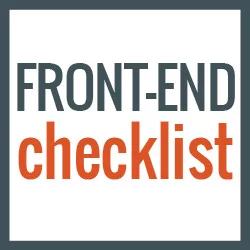Axioned’s Top 5 GitHub Repositories for December 2017

For open-source developers, GitHub is their bread and butter — the place where they feel at home. For the uninitiated, GitHub is a version control system to help you manage files in a versioned, distributed fashion and is optimized towards software source code files, allowing you to work in collaboration with your team.
In this first edition of our Top 5 GitHub repo finds, you can see a clear pattern of what this community is all about — learning and sharing. So without further ado, here’s our list:
Git flight rules
“Flight rules”? For developers? Yes, you read that right.
This is a guide for astronauts (or rather, programmers using git) about what to do when things go wrong.
Flight Rules are the hard-earned body of knowledge recorded in manuals that list, step-by-step, what to do if X occurs, and why. Essentially, they are extremely detailed, scenario-specific standard operating procedures. […]
NASA has been capturing our missteps, disasters and solutions since the early 1960s, when Mercury-era ground teams first started gathering “lessons learned” into a compendium that now lists thousands of problematic situations, from engine failure to busted hatch handles to computer glitches, and their solutions.
— Chris Hadfield, An Astronaut’s Guide to Life
This comes in handy for programmers from both ends of the spectrum of experience to quickly debug specific scenarios, but it is especially a must-have for all budding programmers.
Node best practices
This is a curated list of the top-ranked content on Node JS best practices, style guides, and architectural tips. Contributions here range from ways to fix some (common) code mistakes to suggesting brilliant new ideas, all of which are accompanied with code examples for quicker consumption/implementation.

Front-End-Checklist
The Front-End Checklist is an exhaustive list of all elements you need to have and to test before launching your site or HTML page to production. It is based on front-end developers’ years of experience, with the additions coming from some other open-source checklists.

Create React App
One of the quickest ways to get started with React, this automates the build of your app without the need for configuration files, and the environment will have everything you need to build a modern React app:
- React, JSX, ES6, and Flow syntax support
- Language extras beyond ES6 like the object spread operator
- A dev server that lints for common errors [For the newbie, linting is the process of running a program that will analyze code for potential errors, so essentially the development server checks for potential errors itself.]
- Import CSS and image files directly from JavaScript
- Autoprefixed CSS, so you don’t need -webkit or other prefixes
- A build script to bundle JS, CSS, and images for production, with sourcemaps
- An offline-first service worker and a web app manifest, meeting all the Progressive Web App criteria
While this feature list is comprehensive to start, it is kind of limited if you are working on a production app. Don’t worry. All you need to do is press the eject button and you’ll be able to use this as a boilerplate generator and take off.
Parcel

Parcel is another repository which helps you get started with your development faster. It’s a web application bundler that requires zero configuration and offers:
- Blazing fast bundle times — multicore compilation, and a filesystem cache for fast rebuilds even after a restart
- Out of the box support for JS, CSS, HTML, file assets, and more — no plugins to install
- Automatic transformation modules using Babel, PostCSS, and PostHTML when needed — even node_modules
- Zero configuration code splitting using dynamic import() statements
- Built in support for hot module replacement
- A friendly error logging experience — syntax highlighted code frames help pinpoint the problem
What do you think about this list? Do you have any other repos that are worth sharing? Let us know in the responses below.
